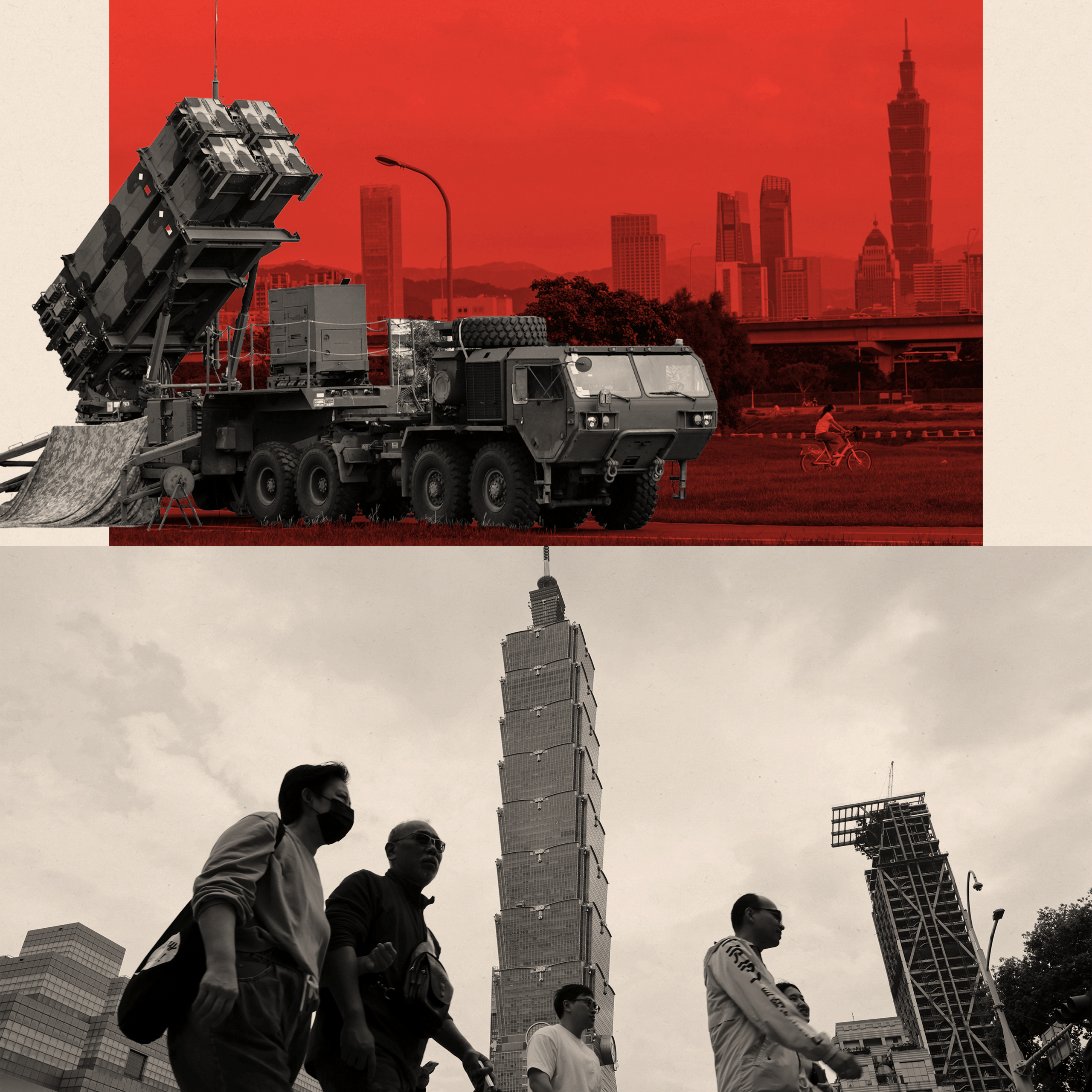
It was just another Friday morning on the Taiwanese island of Kinmen, a few kilometres from the coast of China, when an air raid siren pierced the calm.
At a local government office, people switched off their lights and dove under tables. Others fled to an underground car park. At a nearby hospital, staff rushed to treat people staggering in with bloody injuries.
But the blood was fake, and the casualties were volunteer actors. Together with the government workers, they were taking part in mandatory civil defence and military drills held across Taiwan last month.
The purpose? Rehearsing their response to a possible attack by China.
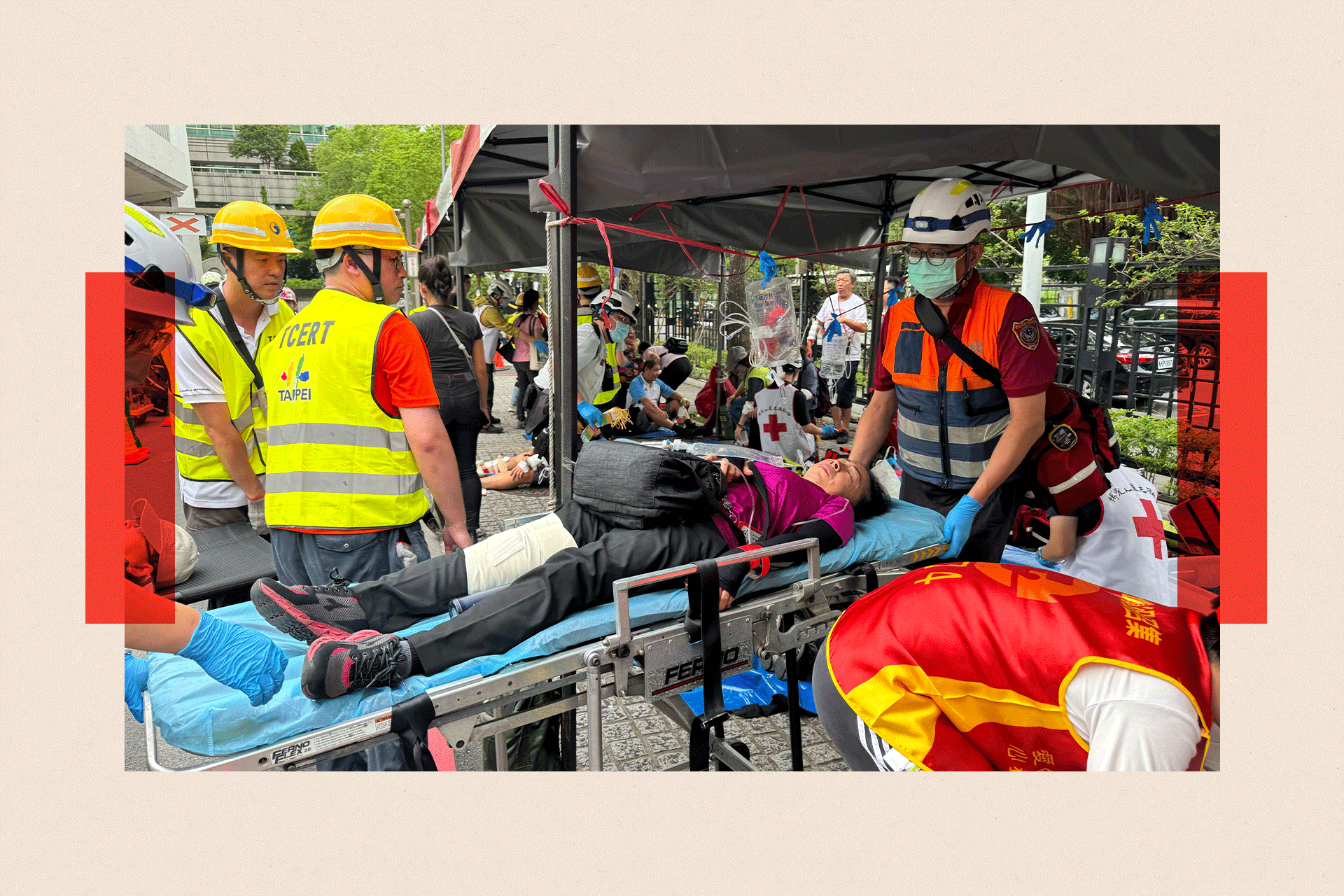
Drills rehearse military and civilian response to a Chinese attack
China has long vowed to "reunify" with self-governing Taiwan and has not ruled out the use of force. It is a threat that Taiwan is increasingly taking seriously. President William Lai, who took office last year, is behind one of the strongest pushes in years to strengthen defence.
One of his biggest challenges, however, is convincing his own people of the urgency. While his defence drive has garnered support, it has also sparked controversy.
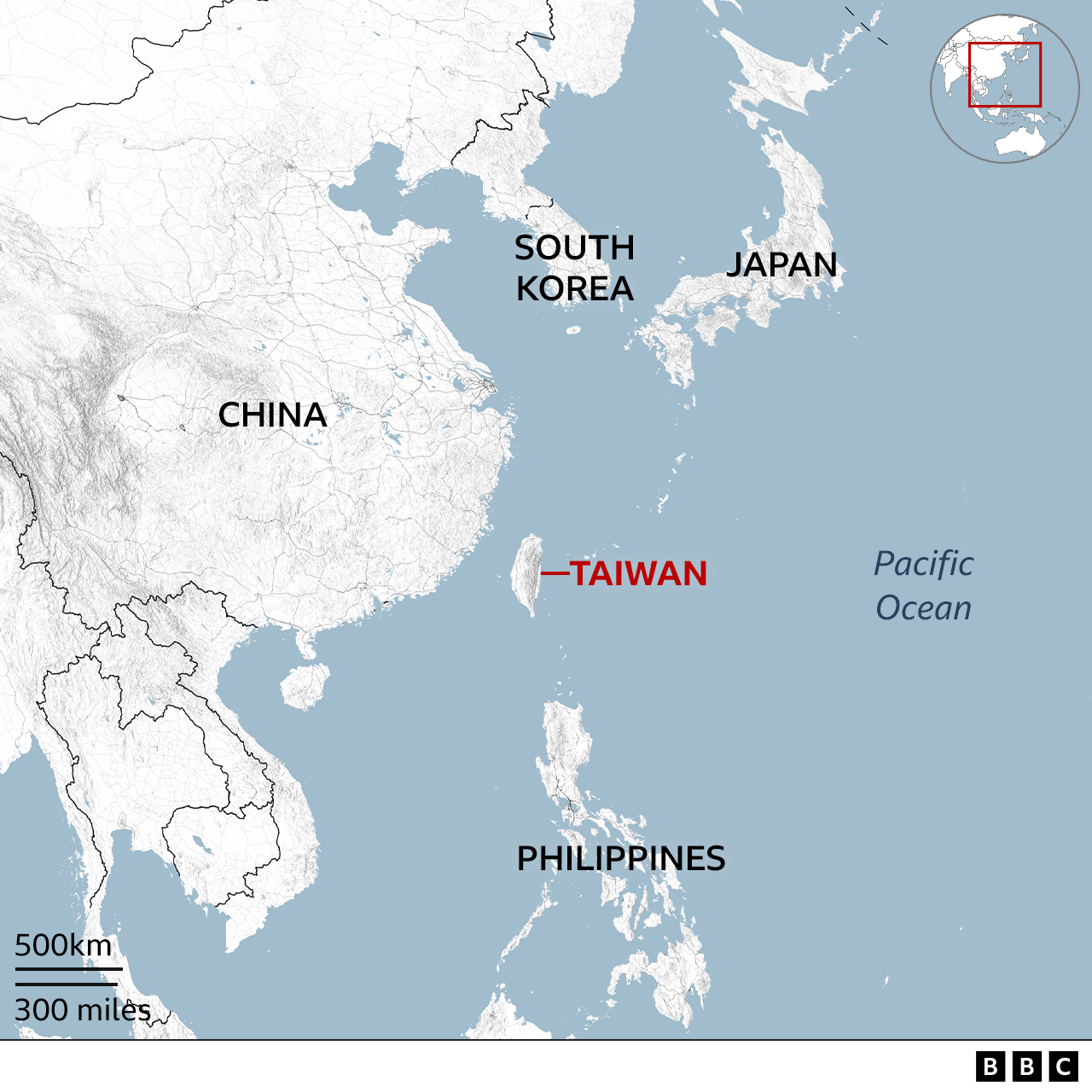
"We do need these defence drills, I believe there is some threat from China," says Ben, a finance professional who works in Taipei. "But the chances of a Chinese invasion are low. If they really wanted to attack us, they would have done so already."
Like Ben, most people in Taiwan – 65% according to a survey released in May by the military-affiliated Institute for National Defense and Strategic Research (INDSR) - believe it is unlikely that China will attack in the next five years.
This is despite the US warning that the threat to Taiwan was "imminent" and that Beijing is readying its military to be capable of invading by 2027.
Taiwan's military preparations
Lai and his government often repeat a particular phrase to explain what is driving them: "By preparing for war, we are avoiding war." They have stressed that they are not seeking conflict but exercising Taiwan's right to build up its defences.
As well as having initiated major military reforms, they also want to increase defence spending by 23% next year to NT$949.5bn (£23bn; $31bn), which would be more than 3% of their GDP, following US pressure to invest more in defence. Lai has pledged to increase it to 5% by 2030.
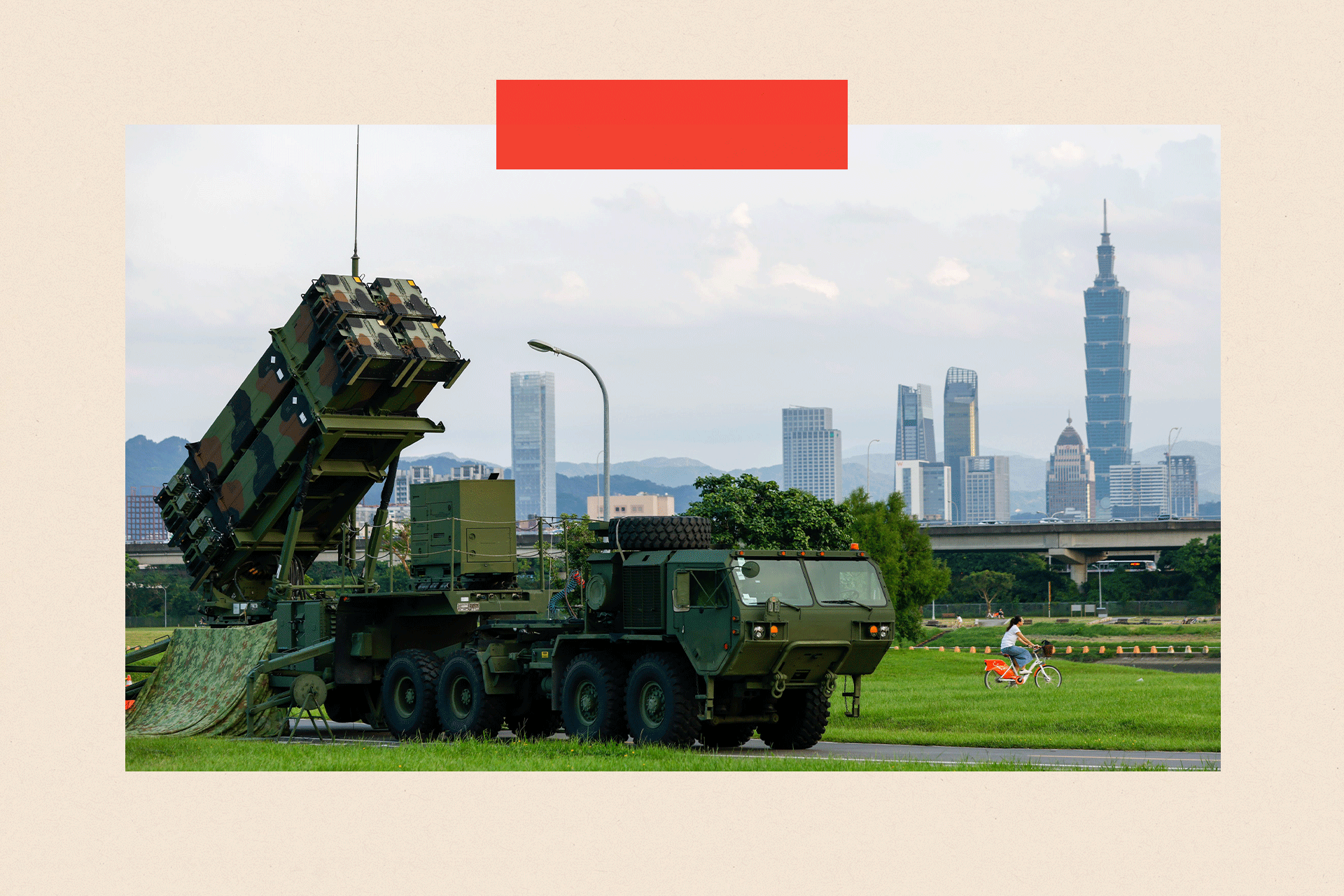
President William Lai and his government have initiated major military reforms
Following a lengthening of its mandatory conscription programme, Taiwan has now increased pay and benefits for the military, and introduced more rigorous training.
These measures are aimed at addressing the perennial problems of troop shortages and low morale - soldiers previously complained of poor training and were nicknamed "strawberry soldiers" for their perceived softness.
The annual Han Kuang war games, which rehearse a military response to a Chinese attack, have been revamped to replace scripted exercises with more realistic simulations.
This year's edition was the longest and largest ever, with 22,000 reservist troops taking part, about 50% more than last year. Besides tackling grey zone warfare and disinformation campaigns, one main focus was to prepare for urban warfare.
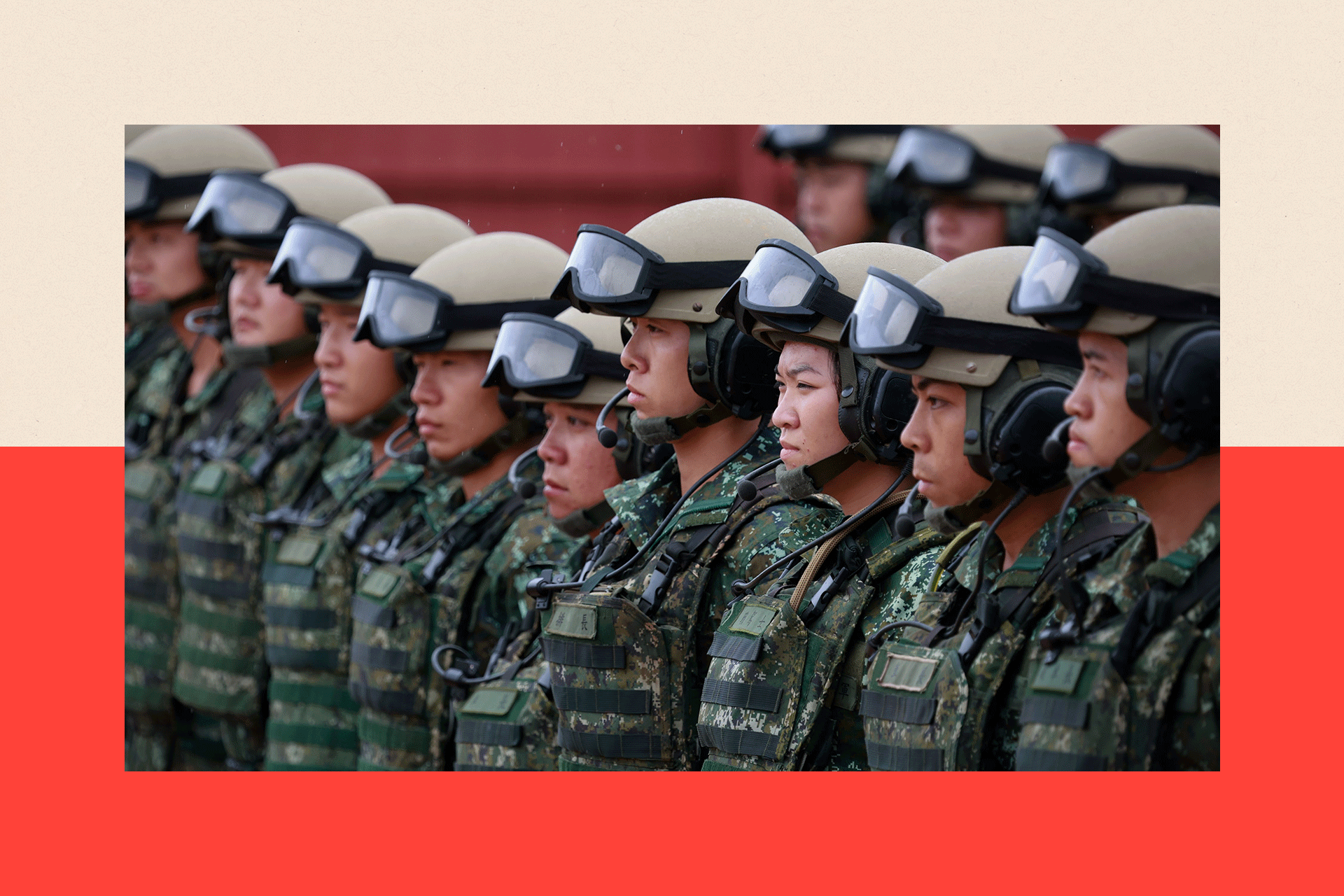
Taiwan has now increased pay and benefits for the military
Soldiers rehearsed fending off enemy troops on the mass transit system, expressways and city suburbs. In Taipei, they practised loading missiles onto attack helicopters at a riverside park, and transformed a school into a battle tank repair station.
But the government is also preparing its citizens for invasion, upping the frequency and scale of civil defence drills.
Practice evacuations, raids and rescues
One of the largest ever, called the Urban Resilience Exercise, was held last month.
Over several days, every major urban area across Taiwan took turns to hold air raid drills. Residents in designated districts had to head indoors, while hotels, shops and restaurants had to pause business. Passengers could not get on or off trains and planes. Anyone caught flouting orders risked getting a fine.
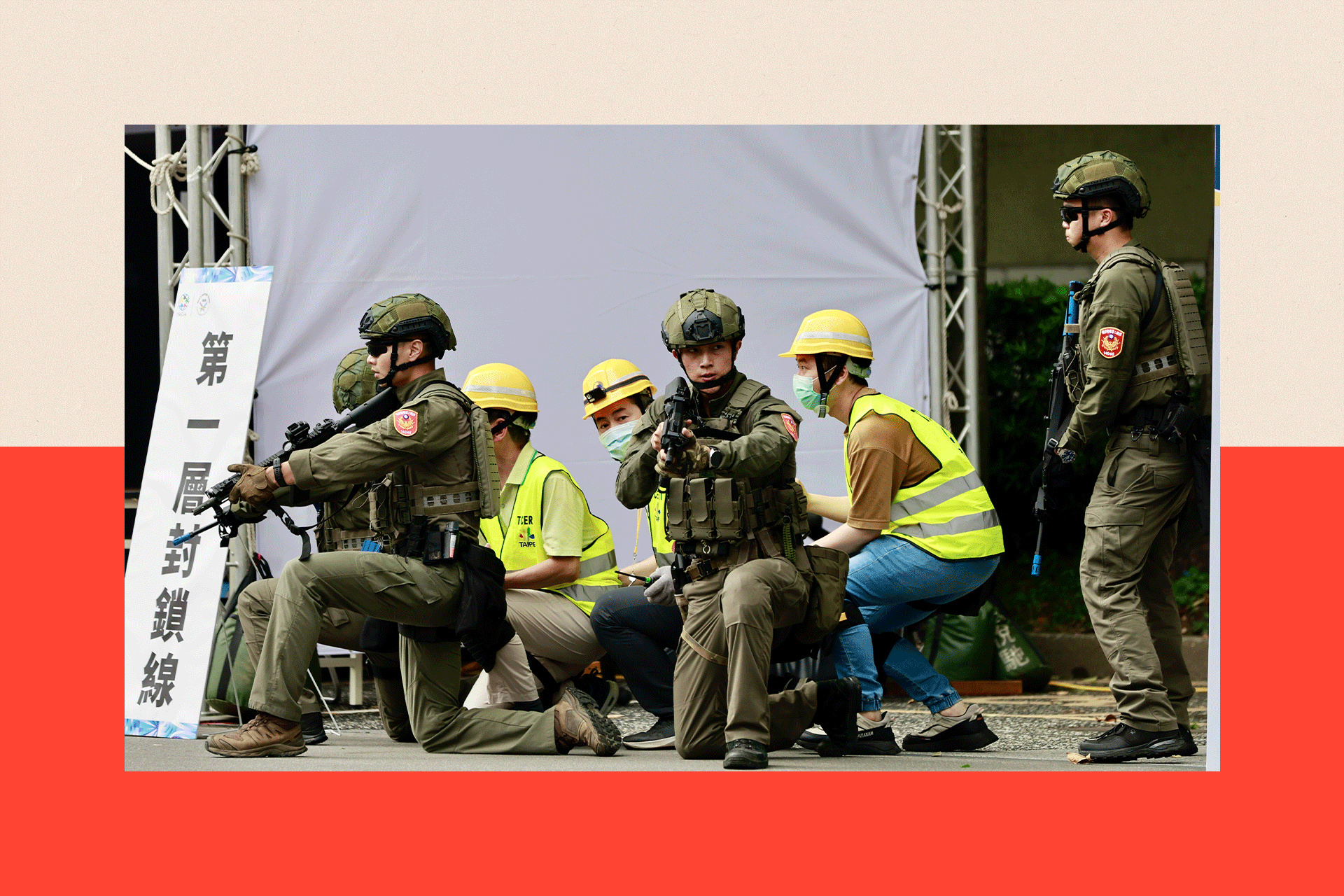
In Taipei, people practised putting out fires and lowering themselves down buildings
In downtown Taipei, emergency teams and volunteers practised evacuating injured people, putting out fires, and lowering themselves down buildings which had been dressed up to look as if they had been hit by missiles. Medical teams triaged evacuees in a car park, wrapping up wounds and stringing up bags of saline for IV drips under tents.
Some Taiwanese approve. "I think it's a good thing. Because I do believe the threat has increased," says office worker Stanley Wei.
"Look at how China keeps surrounding us," he says, pointing out how China has been holding drills to encircle Taiwan with warships.
"I believe in a peaceful co-existence with China, but we need to increase our defence as well," says Ray Yang, who works in IT. "Before the Ukraine War, I didn't care about this [prospect of a Chinese attack]. But after Ukraine happened, I've started to really believe this could happen."
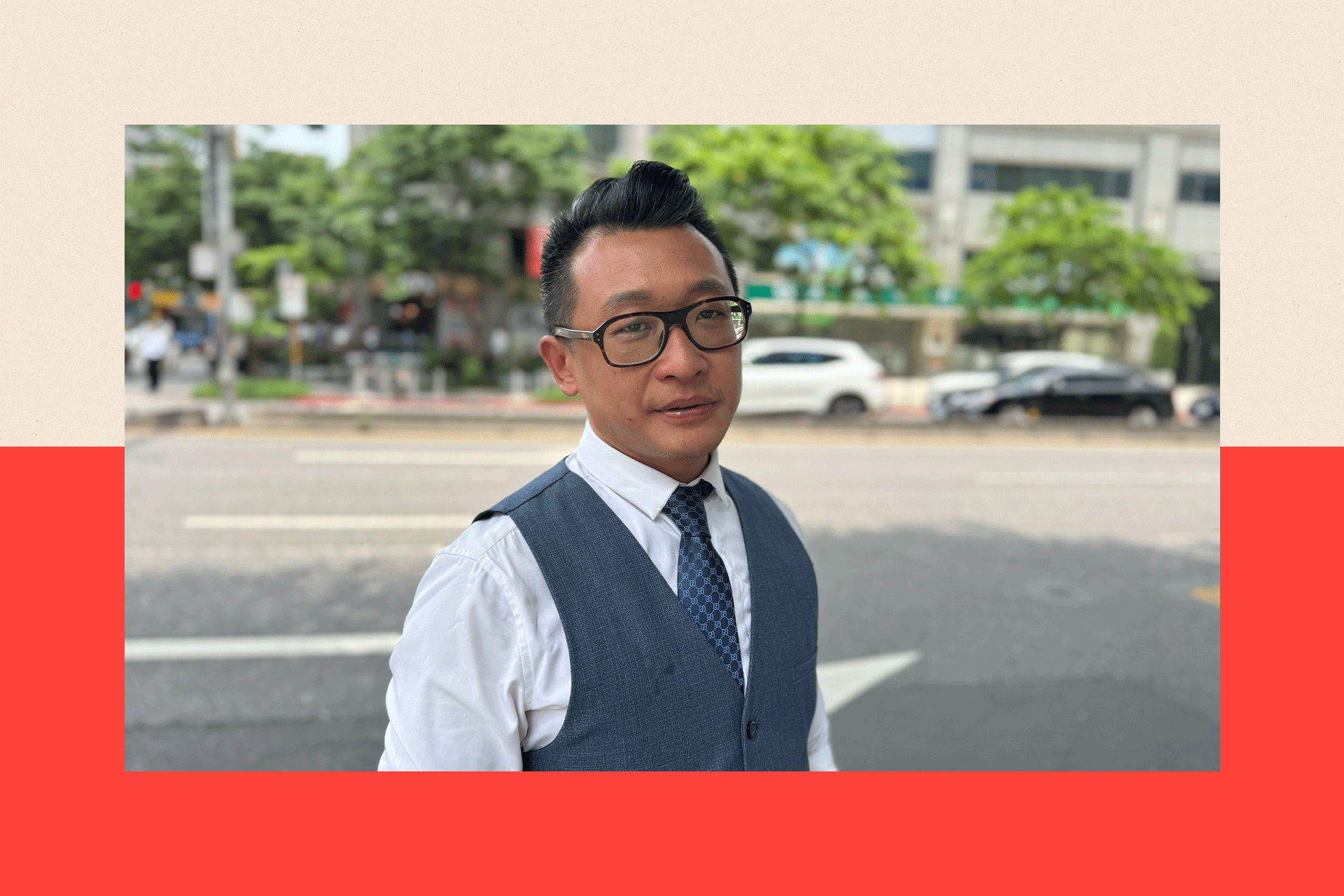
Some Taiwanese, including Stanley Wei, think the drills are a good thing
Some, however, are dismissive. "Even if the attack comes, what can we do?" argues Mr Liu, an engineer.
"I'm not sure they would invade anyway. This threat has always existed."
'Why would they hurt us ordinary folk?'
On Kinmen, the scepticism is even more prevalent.
The tiny island, which saw deadly clashes between Chinese and Taiwanese forces in the late 1940s and 50s, is considered a frontline of any possible attack. But with the improvement of cross-strait relations and economic links, many on Kinmen view their proximity to China as a boon, not a bane.
Much of Kinmen's economy is now geared towards serving Chinese tourists who take ferries across the narrow waterway from Xiamen, the nearest Chinese city.
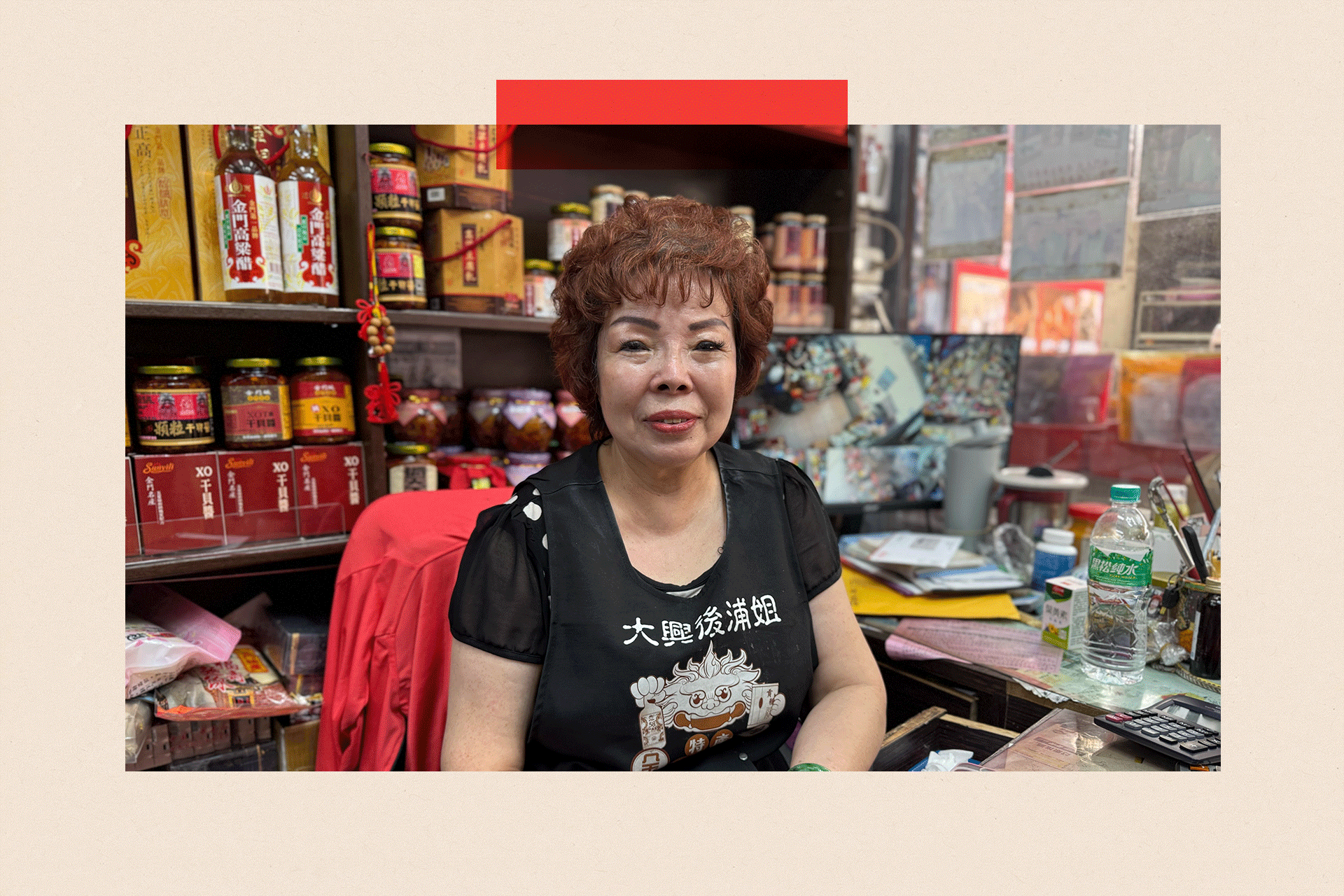
Yang Peiling witnessed Chinese forces from Xiamen shelling Kinmen in 1958
Yang Peiling, 77, runs a shop in Kinmen selling traditional snacks. As a young girl, she witnessed Chinese forces from Xiamen shelling her island during the 1958 Second Taiwan Strait Crisis.
"We were on the mountain gathering wild vegetables, then we saw them shooting cannons and hitting Kinmen," she recalls. "[People] cried 'Xiamen is waging war.' Everything turned red."
Ms Yang and her family survived by hiding in mountain caves. Others from her village were killed.
Decades on, she welcomes day trippers from Xiamen at her shop. "China won't attack us now," she argues. "We are all Chinese, we are all one family. Why would they hurt us ordinary folk?"
Down the road at a souvenir store, shop assistant Ms Chen agrees. "If they blow up our buildings and kill us, what's the point of claiming a land like that? They would gain a Taiwan that has nothing, and that brings them no advantages."
This view - that invading Taiwan would be far too costly and pointless for China - is held by many Taiwanese. Beijing has repeatedly stressed it wants "peaceful reunification", seen by some as a signal it wants a Taiwan that is intact.
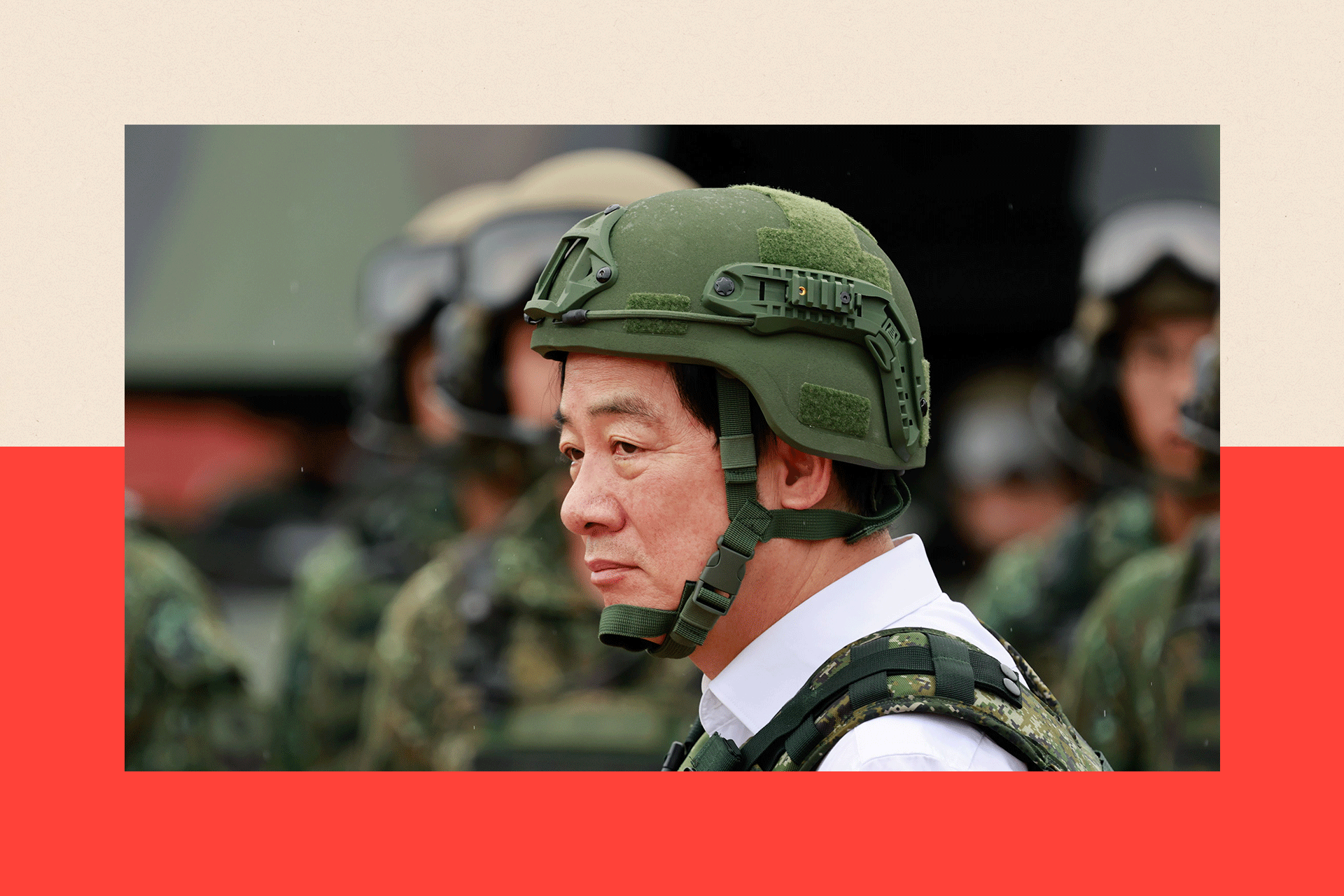
President William Lai argues that China is planning to "annex" Taiwan
But Lai argues that China is a "foreign hostile force" that is planning to "annex" Taiwan, and is continuing its "political and military intimidation".
Another factor that has long reassured the Taiwanese is that the US is bound by law to help Taiwan defend itself.
Though polls suggest this sense of reassurance has waned during President Donald Trump's current administration, some still believe the US would aid Taiwan in the event of an attack - and China would be reluctant to be drawn into a direct military conflict with America.
"This isn't a naïve and innocent view that China doesn't present a threat to Taiwan and would never attack Taiwan," said Shen Ming-shih, a defence analyst with the INDSR.
"Yes, Xi Jinping does have strategic warfare intentions for Taiwan. But China's current military strength does not match America's," he says.
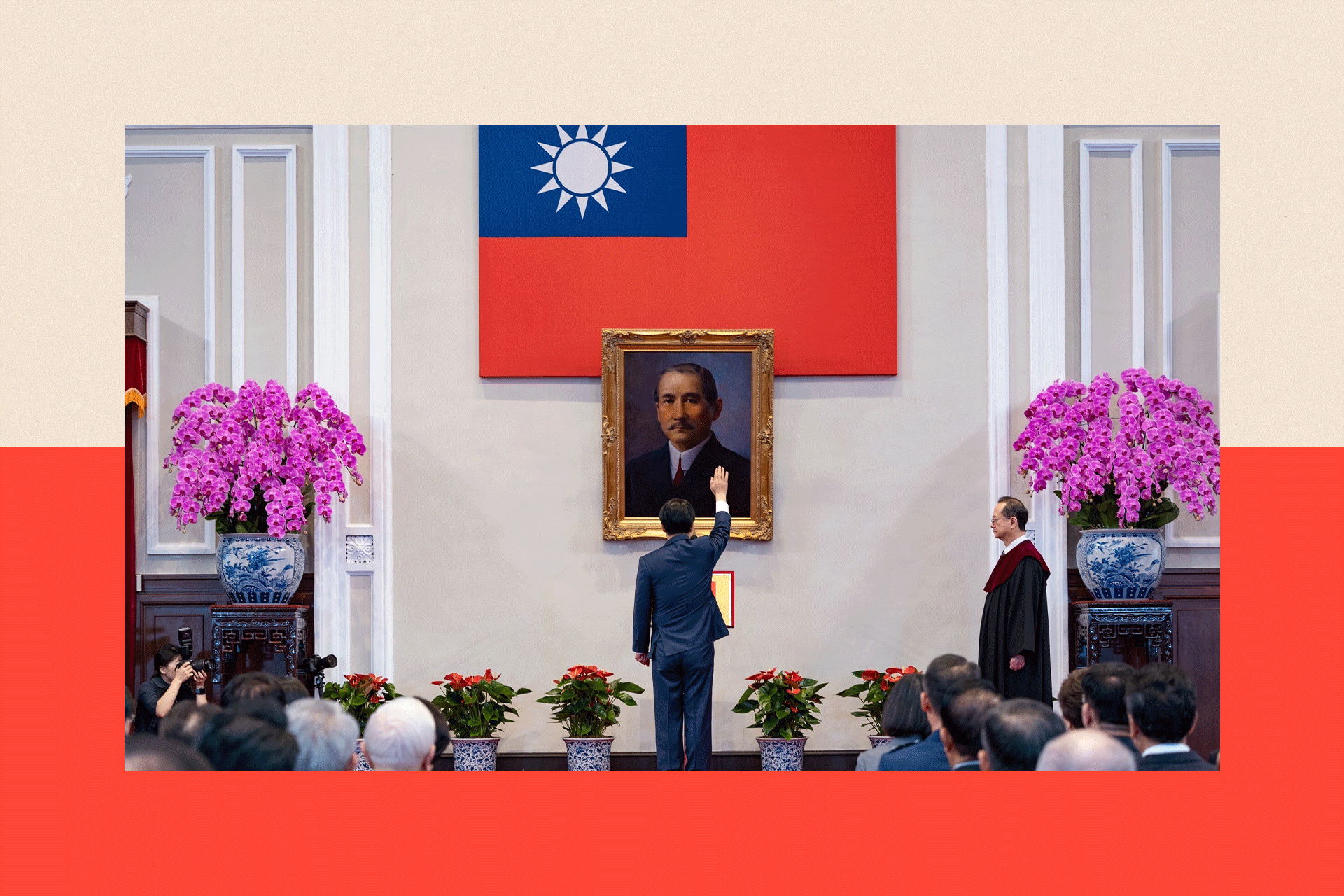
President William Lai has said that China is a "foreign hostile force"
There is also a belief that the international community would come to Taiwan's aid given its outsized importance in the global semiconductor industry, he adds.
But after facing decades of threats, there is also now "a sense of Beijing as the boy who cried wolf," says Wen-ti Sung, a political scientist with the Australian National University's Taiwan Center.
"Psychologically, you can't take every threat seriously without going insane. So people tune out to prioritise their mental health."
The debate around whether China will invade
Whether China will invade has long been an existential debate in Taiwan. But the urgency of this question has spiked with a recent escalation in tensions, particularly with William Lai's election last year.
Lai, who insists that Taiwan was never part of China, and his Democratic Progressive Party (DPP) are reviled by the Chinese government as "separatists".
Beijing has accused Lai's government of deliberately antagonising them, particularly with the defence drive. Last month, China's defence ministry called the Han Kuang exercises "nothing but a bluffing and self-deceiving trick played by the DPP authorities to hijack Taiwan compatriots onboard its 'Taiwan Independence' war chariot".
Any formal declaration of independence by Taiwan could trigger military action from China, which has a law stating it will resort to "non-peaceful means" to prevent the "secession" of Taiwan. Lai maintains Taiwan is already a sovereign nation and therefore has no need to formally declare independence.
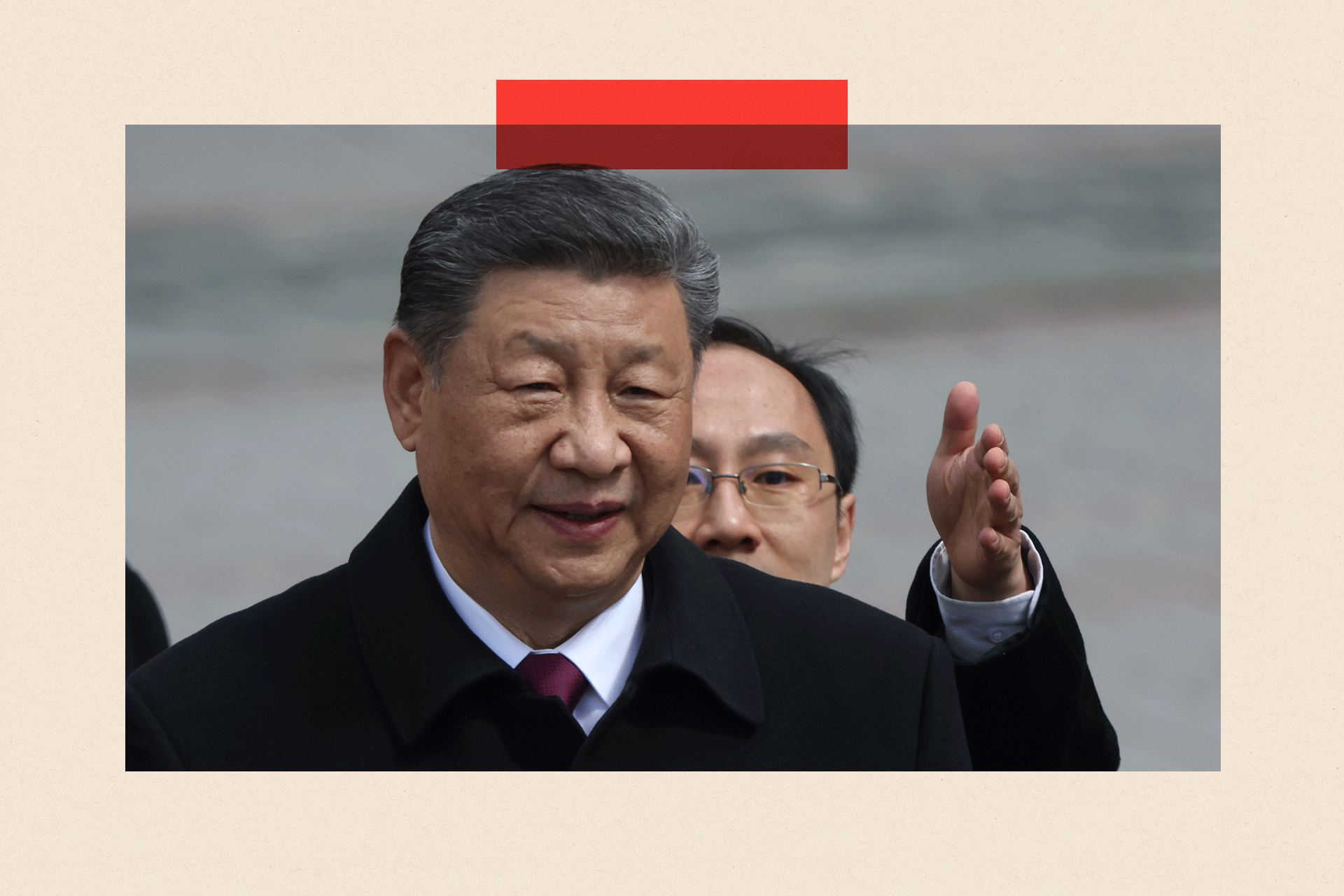
China has increasingly sent its warplanes and ships into Taiwanese airspace and waters
Besides turning up its rhetoric, China has also increasingly sent its warplanes and ships into Taiwanese airspace and waters.
China has never confirmed the US claim that it is readying its military to be capable of invading Taiwan by 2027. But it has been clearly beefing up its army, navy and weaponry, which will be shown off in a much-publicised parade next month.
Experts are divided on whether China is really planning to invade soon. But many agree that the tensions, coupled with China's military moves, increase the possibility of confrontation.
Beach landings, missile attacks and cable sabotage
There are myriad ways China could attack. Besides landing on Taiwan's beaches or launching missile attacks, it could also stage air and sea blockades, or sever undersea communication cables. Many of these scenarios are illustrated in a Taiwanese government-funded TV series depicting a fictional Chinese invasion.
But some, particularly the Taiwan government, believe a subtler invasion may already be taking place: one where China is trying to win the hearts and minds of ordinary Taiwanese in the hopes they would one day choose unification.
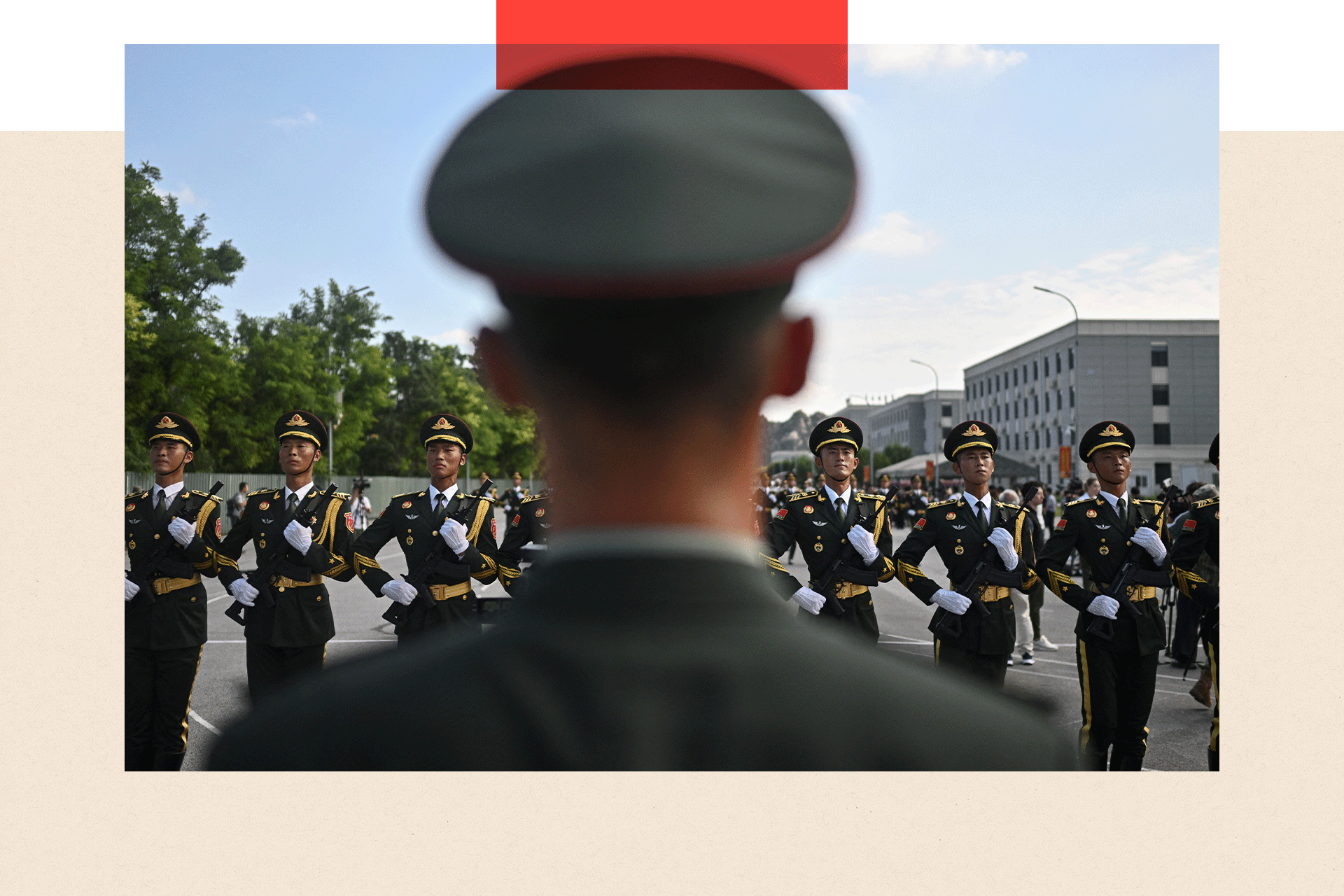
Experts say there are myriad ways China could attack
Officially, China has been encouraging trade and economic ties with Taiwan, as well as cultural links.
Unofficially though, according to analysts and Taiwan officials, Beijing has also invested in disinformation campaigns and influence operations. One study by the V-Dem Institute of Sweden's University of Gothenberg found that for many years, Taiwan has been the most targeted place in the world for disinformation campaigns initiated by a foreign government.
In March, Lai warned of China's deepening influence in Taiwan's economy, culture, media, and even the government, and announced several measures to tighten security.
A number of Taiwanese soldiers and military officials have been jailed for allegedly spying on behalf of China. Members of the DPP – including a former aide to Lai – have also been charged with spying.
Meanwhile, Taiwanese celebrities friendly to China, social media influencers and Chinese spouses of Taiwanese citizens have come under close scrutiny, with some deported or forced to leave.
Lai has also backed a deeply controversial grassroots movement aimed at kicking out opposition politicians perceived as being too close to China.
'Lai is crazy in the way he talks to China'
There are some signs of public support of the defence drive. The INDSR survey found more than half of Taiwanese approve of increasing defence spending, with even more supporting US weapons purchases.
But there is also unease. One view is that the defence drive and Lai's rhetoric are provoking China, which could lead to war.
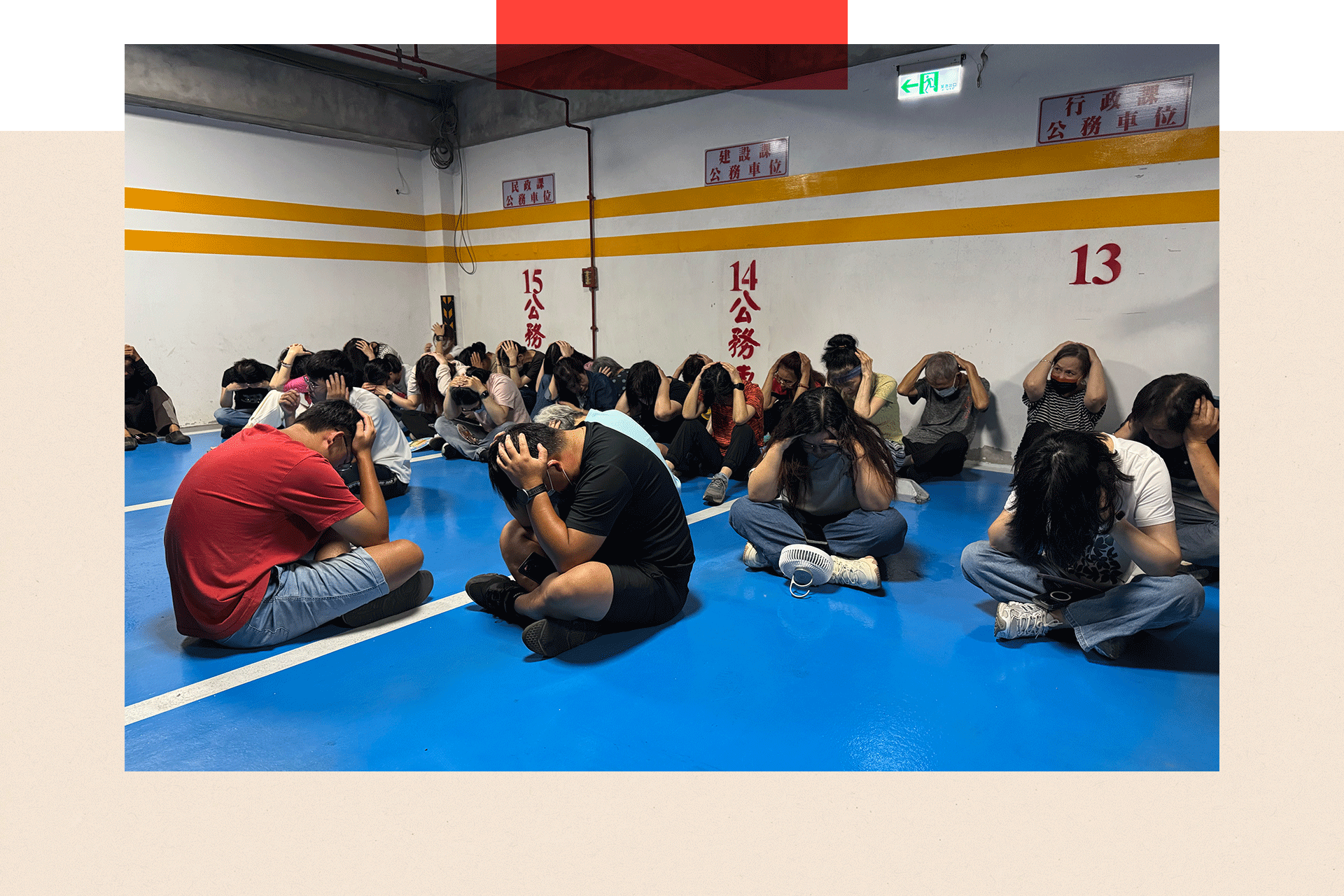
One view is that the defence drive could provoke China
"I feel China is very simple," says Ms Chen, the Kinmen shop assistant. "As long as you don't tell them you want independence, they won't do anything to you.
"But William Lai is crazy in the way he talks to China. It will stoke their fury. You never know, one day Xi Jinping may get very unhappy and attack us."
Polls consistently show that most Taiwanese people want the "status quo", meaning they neither want to unify with China, nor to formally declare independence.
The political opposition, dominated by the Kuomintang (KMT) party, accuses the DPP government of using the prospect of a Chinese invasion to fearmonger so it can gain political support.
Alexander Huang, the KMT's director of international affairs, characterised the DPP government as "verbally intimidating the Chinese unnecessarily and damaging the stability in the Taiwan Straits".
Still, others argue that Taiwanese need to take a firm stand against China.
"[Citizens] have to acknowledge that China is a threat to Taiwan, and can use force, and that it is currently preparing to do so," said Dr Shen.
"And so national security officials and the military must first prepare for this."
More from InDepth
Top image credit: Ritchie B Tongo/ EPA/Shutterstock/ EPA -EFE/REX
BBC InDepth is the home on the website and app for the best analysis, with fresh perspectives that challenge assumptions and deep reporting on the biggest issues of the day. And we showcase thought-provoking content from across BBC Sounds and iPlayer too. You can send us your feedback on the InDepth section by clicking on the button below.
Get in touch
InDepth is the home for the best analysis from across BBC News. Tell us what you think.

